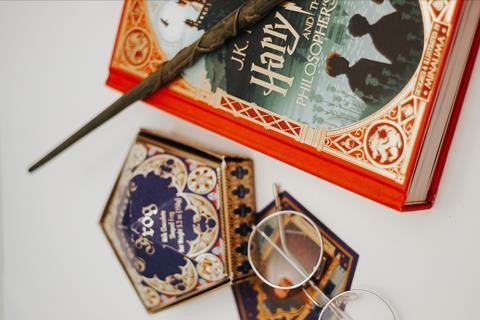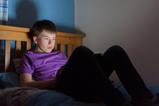Are fantasy and magic in children’s fiction harmless? Kate Orson suggests we need to pay more close attention to what our children are reading

As an ex ‘new-ager’I want to share some concerns about magic in children’s books and films.
One of the things that surprised me after coming to Christ was how many Christian parents weren’t concerned with magic and fantasy in children’s books. There seems to be almost unanimous agreement that books with homosexuality or transexual themes should be avoided. But there seems to be less agreement about the risks of reading/watching films with magical themes.
As someone who practised ‘new age’ spirituality, I became a believer after watching ‘new age to Jesus’ testimonies on YouTube. From these I learnt that God considers the practices of developing psychic skills or manifesting to be witchcraft, something he calls an abomination. ‘There shall not be found among you anyone who burns his son or his daughter as an offering, anyone who practices divination or tells fortunes or interprets omens, or a sorcerer.’ Deuteronomy 18.10
Is exploring ‘magic’ in story good?
Christian authors such as C.S Lewis and J.R Tolkien paved the way for magical and fantastical themes to be commonplace in books widely read by Christians. But is exploring magic in fiction any different to reading a book with a gay or transexual character?
The fantasy quests, dragons, and wizarding schools of children’s fiction may appear a far cry from reality. Perhaps that’s why these kind of books don’t appear to be a threat to young people’s faith. LGBT issues are never far from the news, and in some instances are even pushed or promoted, with such events as drag Queen story hour for toddlers.
However, there does appear to be a concerning link between reading fictional magic books and the practise of real-life witchcraft.
Marisa’s story
Marisa became a Wiccan witch at aged eleven. In her testimony on the ‘Real Lives - Saturdays at 8’ channel on YouTube she says, ‘’Towards my late childhood I got very interested in Harry Potter and that opened up an entire spiritual direction that engulfed me for the next ten years.’
Marisa recalls that when she was growing up ‘there was this explosion of new age and magic themed TV shows and music, bands like Bewitched, TV shows like Charmed, Sabrina The Teenage Witch and The Worst Witch. There were so many and all they were showing were the powerful aspects of being a witch or a wizard, and that you could harness power, and control and dominate over people. I identified as a white witch, but you could definitely attempt to manipulate circumstances around me and to harness what I believed was some kind of power.’’
At the time Marisa thought she was using her powers for good, and like most witches she differentiated between ‘white’ and ‘black’ magic. However she now sees that the ‘underlying spiritual foundation is exactly the same.’ She said ‘’I thought I was going into something good but I came out incredibly damaged and damaging the people around me. The outcome is always the same. It’s very destructive.’
Marisa ended up needing years of psychiatric support and attempted to take her life twice. Her life turned around when she met other Christians and became a born-again Christian herself.
Brian’s story
Brian Reed’s journey into witchcraft arose out of a passion for reading. In his testimony ‘Escaping The Vampire’s Lair,’ in the anthology ‘Dancing With The Devil,’ compiled by Jeff Harshbarger, he describes how he was an ‘avid bookworm’ who read everything from a ‘particular series about a boy wizard to comic books to anything else he could get his hands on.’ As he got older he recalls ‘he no longer wanted to read about fantastic things, but experience the fantastic myself.’
Reed was in the local bookstore, perusing the fantasy section when he turned a corner to the next row of shelves and found the new-age section. He ended up buying a book on vampires, which introduced him to the concept of ‘psychic vampires.’ Reed started exploring more online, and began practising techniques to psychically drain energy from people he disliked. Overtime he became depressed, self-harming, and involved in a destructive relationship. Like Marisa, Reed also eventually came to Christ though he still struggles with his mental health and HIV after exchanging blood with others in rituals.
These stories may sound alarming, and while they are extreme examples, it is all too common for children who grew up with Harry Potter etc. to be intrigued by witchcraft and the new age as adults.
In a time where the number of people identifying as Christian is falling, while the number who identify as ‘spiritual but not religious,’ is growing, we do need to be aware of the pipeline from magical story books to real life adult magic. My experiences in the ‘new age’ taught me that witchcraft comes in many different packages, using techniques like ‘manifestation,’ visualisation, and different forms of alternative healing. It’s more pervasive and less obvious than wearing a black hat, and riding a broomstick.
So should we start burning books? Coming to Christ later in life when my daughter was aged ten and had already read a good deal of magical stories, I prefer to opt for honest conversation, rather than being overly controlling. I also think it’s about being honest with ourselves and when we do buy books for children, being fully aware of what the content is, and making careful decisions. While it might be easy to say, magic is fine, as long as it’s fictional, I think we need to bear in mind that God didn’t make that distinction. When Jesus told his fictional parables there was always a nugget of truth within them. Within the fictional stories of the culture, there may instead be a lie such as ‘witches can be good,’ or ‘personal power is the way to defeat evil.’
It can seem scary when we realise just how much in the culture is ‘anti-God,’ but I try to remember that God didn’t want us to live in fear. Our worries and anxieties can lead us back to prayer and God will be with us every step of the way. For me, the key is to remember to ask what He thinks.







































